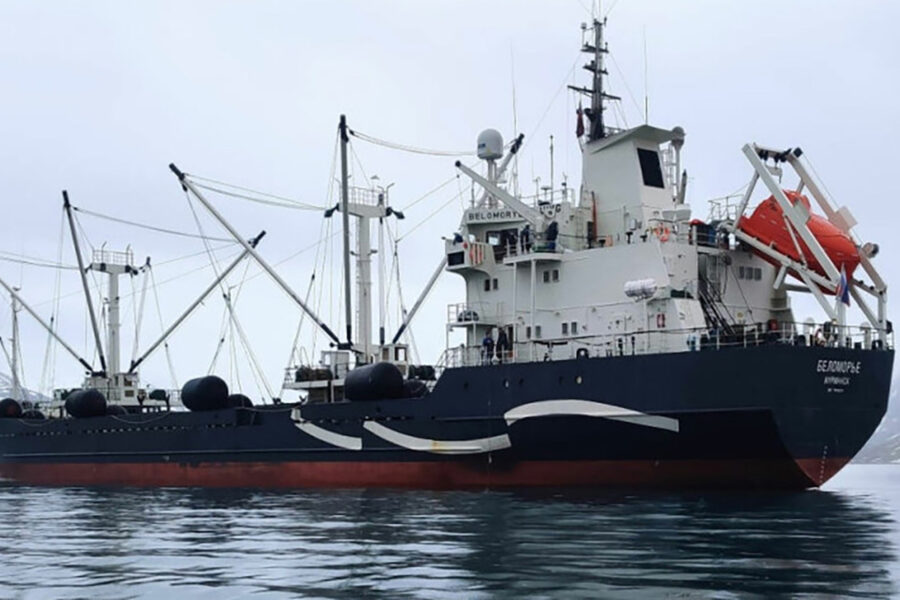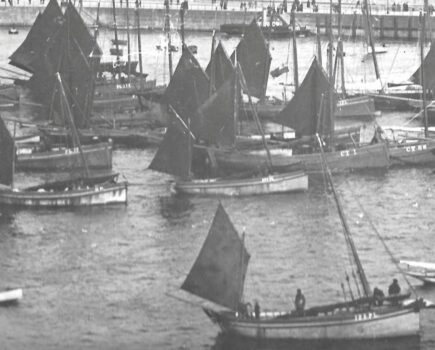To achieve a fair global marketplace and end the undercutting of fish caught to higher standards by UK and Irish fishermen, supply chain traceability in seafood is essential
By Laure Boissat, Senior environmental, social and governance analyst at the FAIRR initiative
As global demand for seafood continues to grow, creating a fair and transparent playing field within the seafood market is more important than ever. At the same time, seafood supply chains are becoming increasingly complex, transnational and opaque, exposing the industry to a range of serious material risks.
These include illegal, unreported and unregulated (IUU) fishing, forced labour and human rights violations, and the escalating impacts of climate change. For seafood businesses and their stakeholders, these risks present significant challenges that cannot be ignored.
At present, 20% of wild- caught seafood around the globe originates from IUU fishing, costing the global economy between US$15bn and $36bn annually. In addition, the International Labour Organisation (ILO) estimates that approximately 128,000 fishing workers are in forced labour on remote vessels worldwide.
To address and eliminate these issues across supply chains, improving transparency about the origin and production methods of seafood is a crucial first step. Supply chain traceability – defined as the ability to trace a product from the point of production (in the case of seafood, from the vessel or farm of origin) all the way through the supply chain – offers a powerful solution, enabling greater transparency and accountability across the sector.
Engaging on traceability at home and abroad
FAIRR is an investor network focused on showcasing the environmental, social and governance risks and opportunities in the global food sector; our latest research shines a light on the irregularities in seafood supply chains across market regions.
Through an investor engagement supported by 35 investors representing US$6.5tn in assets under management, we assessed seven of the largest seafood companies on their traceability efforts. All seven companies involved in the research acknowledge the importance of traceability systems and express a willingness to engage further with FAIRR and our investor members on this issue.
Most companies rely on chain of custody programmes to testify of their sustainability claims – the most widely adopted being the Marine Stewardship Council and the Aquaculture Stewardship Council – but these certifications do not amount to full-chain, digital and interoperable traceability.
Encouragingly, one company suggested exploring how certification programmes could better match leading traceability data standards that cover the entire supply chain of companies, in a way that is digital, connected and works across different systems. This demonstrates a growing commitment to improving transparency across the sector.
Our research covered a range of seafood companies, including those from Europe and Asia. It is vitally important that imported fish is held to the same scrutiny as domestic products. Strengthening supply chain traceability would create a fairer environment for Britain’s fishers, while ensuring that seafood is globally scrutinised in a consistent manner. This could help prevent unfair undercutting and poor fishery management.
Traceability – and its recognition across the industry, from producers to consumers – is essential for ensuring sustainable and ethical practices. However, progress remains slow. Only two out of seven companies we have assessed have a group-level traceability commitment covering all seafood products and aquaculture feed procurement. While the implementation of these commitments and reporting on progress is still limited, it represents a positive step forward for the industry.
The benefits of traceability
Consumers are increasingly concerned about where their food is coming from, but many are confused by the various complicated certifications and marketing standards that they come across. When purchasing fish products, it remains largely impossible for consumers to know where this fish has been caught and processed, and how many vessels it has gone onto before reaching that supermarket shelf. Standardising fish and seafood certifications could go a long way to solve this problem, enabling consumers to make more informed choices.
For companies, improving traceability offers a range of benefits beyond operational efficiency. For instance, strong traceability systems not only enhance regulatory compliance but also encourage revenue generation through price premiums, boost reputational benefits and provide intangible advantages. These include more accurate business data, advanced analytics and improved captain and crew experience, all of which contribute to a more sustainable and profitable business model.
Regulation and disclosure
Regulation is tightening as governments increasingly recognise the issues related to a lack of traceability in seafood supply chains. New regulations, such as those from the US, EU and Japan, along with voluntary standards like the Taskforce on Nature- Related Financial Disclosures fishing and aquaculture sectors guidance, are placing a greater focus on mapping companies’ environmental and social impacts throughout the supply chain.
Traceability is the key tool that enables companies to map these impacts and dependencies on the wider environment and society. Without transparent operations and sourcing information, it is simply impossible for a company to reduce its impacts on climate and nature.
Aquaculture feed is also under scrutiny, highlighting the importance of traceability as the first step for companies to fully understand their supply chain operations, and be able to identify any potential environmental, social and governance risks. Our analysis shows that even for the two companies with the more robust traceability commitment – Charoen Pokphand Foods and Thai Union – the implementation of these commitments and reporting on progress remains limited.
For the seafood sector to mitigate its environmental, social and governance risks, it is crucial that all stakeholders work together to ensure full traceability. This will create more transparent, competitive and sustainable supply chains across geographies, supporting those who work in the sector and addressing the broader environmental and social challenges facing the industry. At FAIRR, we look forward to further engaging with investors and companies on this important topic in the new year.
This story was taken from the latest issue of Fishing News. For more up-to-date and in-depth reports on the UK and Irish commercial fishing sector, subscribe to Fishing News here or buy the latest single issue for just £3.50 here.
Sign up to Fishing News’ FREE e-newsletter here.








